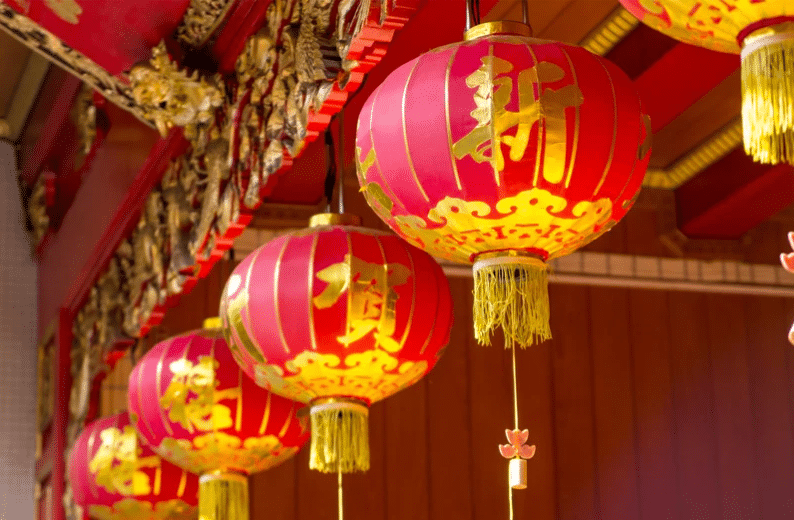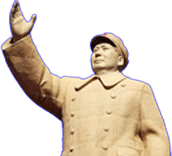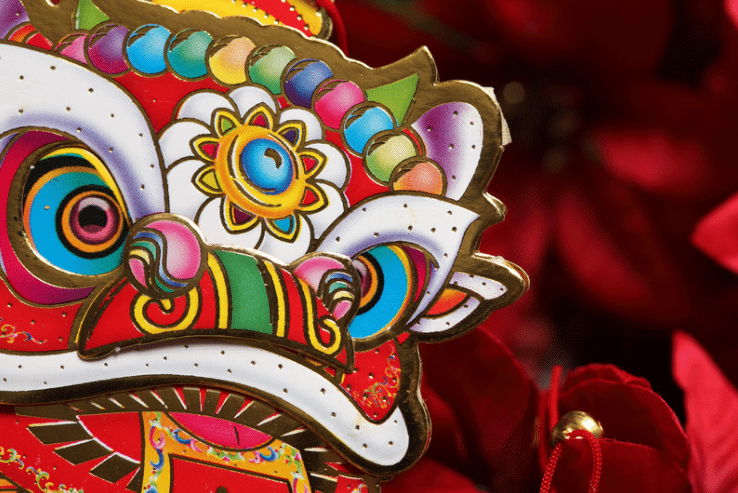China, one of the oldest civilizations in the world, boasts a rich cultural heritage that spans centuries. And what better way to get a glimpse of its unique traditions than by immersing yourself in its holidays and festivities? From vibrant dragon parades to mouth-watering delicacies, China’s celebrations are as diverse as they are colorful. Put your Mandarin Show lessons to good use by learning about the holidays people celebrate on the other side of the world!
Chinese New Year
The Chinese New Year, or Spring Festival, is undoubtedly the most important festival of the year. It marks the beginning of a new lunar cycle and is celebrated with many colorful customs. Families gather for a reunion dinner on New Year’s Eve, where they feast on dumplings, fish, and other traditional dishes. Children receive red envelopes filled with money, symbolizing good luck and wealth. Fireworks and dragon parades are also familiar sights during the festivities.
Chinese New Year’s timing is rooted in the lunar calendar, which is based on the cycles of the moon. Unlike the Gregorian calendar widely used today, which is solar and counts 365 days as a year, the lunar calendar counts a lunar month as the time from one new moon to the next, resulting in a year that typically spans 354 days. Chinese New Year falls on the second new moon after the winter solstice, usually between January 21 and February 20. This variation in dates makes it a “movable” holiday. This ancient timekeeping system, deeply rooted in agricultural practices, continues to guide the scheduling of Chinese New Year, reinforcing the cultural significance of the lunar calendar in Chinese tradition.
The Mid-Autumn Festival
Celebrated on the 15th day of the 8th lunar month, the Mid-Autumn Festival celebrates the harvest, family, and unity. Families will often gather together to light lanterns, gaze at the full moon, and enjoy a variety of traditional foods. One of the most popular customs is mooncake eating – a tradition that dates back to the Tang Dynasty. These sweet or savory cakes symbolize unity, prosperity, and the full moon, which is said to be at its brightest during this time of year. These pastries are typically round or rectangular, mirroring the moon’s shape. A traditional mooncake has a rich, dense filling often made from lotus seed paste or sweet bean paste and may contain one or more whole salted egg yolks in its center, representing the full moon. The exterior is a thin, tender pastry shell usually imprinted with Chinese characters for ‘longevity’ or ‘harmony,’ as well as intricate designs depicting the Mid-Autumn Festival’s legend. Today, modern variations of mooncakes have evolved, with unique fillings such as matcha, chocolate, and even durian. Despite the variations, the essence of mooncakes remains — they symbolize reunion, shared amongst family and friends during this festive period.
Qingming Festival
The Qingming Festival, usually observed around April 4th or 5th, is profoundly significant in Chinese culture. Symbolizing a time of remembrance, it bridges the present and the past, allowing Chinese families to honor and show respect for their ancestors. It is a day of reflection where traditions are passed down through generations, reinforcing familial bonds and instilling a sense of gratitude and responsibility towards one’s heritage. Traditional activities like grave sweeping and making food offerings are not only rituals of worship but also embody the Chinese values of filial piety and reverence for ancestors. One traditional dish associated with the festival is Qingtuan, a green glutinous rice ball stuffed with sweet or savory fillings. The festival is also a celebration of spring, with families often taking the opportunity to enjoy the outdoors after paying their respects to the departed. The Qingming Festival, therefore, represents a harmonious blend of solemnity, remembrance, and celebration of life.
The Dragon Boat Festival
The Dragon Boat Festival, also known as Duanwu Festival, is a unique cultural event celebrated on the 5th day of the 5th lunar month. The festival is best known for its dragon boat races, where teams of rowers paddle furiously to the beat of drums in beautifully crafted dragon boats. These races commemorate the ancient poet Qu Yuan, who, according to legend, drowned himself in a river to protest against the corrupt government.
Another essential part of the Dragon Boat Festival is preparing and eating zongzi—sticky rice dumplings wrapped in bamboo leaves. These dumplings are commonly filled with meats, beans, and other ingredients, offering a delightful taste.
Lantern Festival
The Lantern Festival is a joyful celebration that marks the end of the Spring Festival. People across China light and display vibrant lanterns on the 15th day of the 1st lunar month. Many locals will feast on tangyuan, a sweet glutinous rice ball served in soup, or try their hand at solving lantern riddles. Children often carry paper lanterns and walk around the neighborhood, enjoying the enchanting display of colorful lanterns. The Lantern Festival has become a symbol of community and togetherness, with people coming together to share this ancient tradition’s joy. It’s also an opportunity for creativity, with lantern makers showcasing impressive designs that range from traditional depictions of animals to folklore.
Christmas
Christmas is not a recognized public holiday in China, given its lack of religious significance in a predominantly non-Christian culture. The festival has gained increasing acceptance, particularly in urban areas and is often viewed as a symbol of Western culture but celebrated with a unique Chinese twist. On Christmas Eve, a tradition has emerged where people exchange apples, stemming from the similarity between the Chinese word for Christmas Eve, “Ping’an Ye,” and the word for apple, “pingguo.” For many young Chinese people, Christmas is akin to Valentine’s Day, with couples going on dates and exchanging gifts. However, the small Christian population commemorates the holiday more traditionally with church services and caroling.
Ancient Traditions
There is a reason why China’s holidays and traditions have lasted for centuries – they evoke a sense of community, joy, and history. Whether it’s dragon boat racing or moon gazing, there’s always something for everyone to enjoy in China. And while you may not be able to experience the true magic of these events in person, it’s always possible to learn about these traditions and practice Mandarin with The Mandarin Show!


